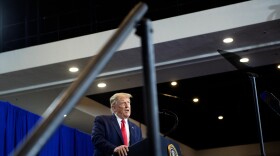The news of a promising COVID-19 vaccine from pharmaceutical giant Pfizer and the German company BioNTech is generating optimism this week.
But in the Mountain West, there will be significant challenges in storing and distributing this type of vaccine in rural areas.
For starters, long distances between vaccination sites and rural populations will impede access. According to a Pew Research Center study, rural Americans have to travel nearly twice as far as their suburban or urban counterparts to reach health services.
Then there’s the question of how to properly store and hold this particular type of vaccine for distribution.
“Do we even have the infrastructure in a lot of these remote health clinics or pharmacies to keep the vaccine at the temperatures they need to be in order to continue to be effective and not degrade over time?” asked Ari Neumann with the nonprofit Rural Community Assistance Corporation, which serves rural communities throughout the region.
This vaccine would require ultra-cold freezers and lots and lots of dry ice – resources that could be difficult to obtain in more remote areas.
Neumann also worries about vaccine skepticism.
“I think communication and trust are going to be really important – that people trust that the vaccine is safe, that it will be effective and that it’s needed,” he said.
Rural communities in the Mountain West have been hit hard by the pandemic.
Neumann hopes that state and federal agencies work in close coordination with existing organizations already on the ground in vulnerable areas. He says we shouldn’t need to “reinvent the wheel” to ensure a smooth rollout of a vaccine.
States across our region are in the process of preparing immunization plans in coordination with the Centers for Disease Control and Prevention.
This story was produced by the Mountain West News Bureau, a collaboration between Wyoming Public Media, Boise State Public Radio in Idaho, KUNR in Nevada, the O'Connor Center for the Rocky Mountain West in Montana, KUNC in Colorado, KUNM in New Mexico, with support from affiliate stations across the region. Funding for the Mountain West News Bureau is provided in part by the Corporation for Public Broadcasting.








